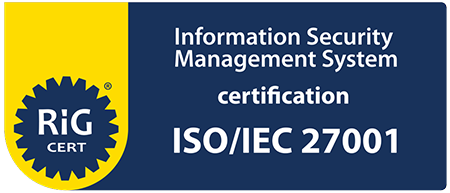At the beginning of the new year, we continue to reveal the trends shaping HR management in 2022.
At the end of 2021, we shared the top 5 of 10 trends for the HR sector. If you missed them, you could find them here: HR TRENDS FOR 2022: From Adaptation to Transformation (PART 1)
Here's the second part of our material, which will take you through the other 5 HR trends for 2022:
6. HR as a product
One of the most significant factors that will impact HR management in 2022 is the change in the perception of HR shifting from a project-based to a product-based sphere.
This is a fundamental shift for the functioning of HR as a whole. Traditionally, HRM has been implemented on a project basis. A project has clear timelines, set deliverables, predefined resources, and the goal is to manage it effectively.
On the other hand, a product is in a constant process of improvement. It does not necessarily have a specific end and aims to provide value with (additional) resources being allocated as impact increases.
This shift in the way HR management is perceived will not only improve the quality of the delivered HR services but will also enable HR experts to build employee capabilities more effectively that will ultimately help improve business performance.
However, such a change will also require an upgrade in the knowledge and skills of HR professionals. They will have to understand employees better, their changing habits and preferences. What's more, they will need to increase the effectiveness in delivering a more personalized and unique employee experience at work.
7. Collaboration design
The role of the office has fundamentally changed. It has become clear to everyone that work can be done quite well also outside the office. In fact, 81% of the companies found that their employees' productivity has increased during the pandemic, and they could get more work done in less time.
The downside is that remote work has reduced communication between employees and alienated them. For example, ADP data shows that remote workers have fewer spontaneous conversations with colleagues than on-site workers (60% vs 77%, respectively). All of this harms company collaboration and innovation.
That's why, in 2022, the HR sector will need to become much more focused and engaged in helping organisations change the way collaboration, teamwork, and innovation are delivered.
HR professionals can help for the creation of conditions allowing employees to work on different projects within or outside the organisation by:
- Workplace design (both physical and digital). This will help teams work better together and feel connected no matter where they are.
- Organisational projects that encourage cross-functional teamwork and result in effective collaboration and diversity of ideas and perspectives.
- Talent programs that allow for rotation.
- Using digital platforms to connect employees asynchronously so that they can work together anytime, anywhere.
By taking a design approach to collaboration, HR experts can help build an organisation that provides the comforts of working from home while ensuring that teamwork practices continue to bring value and innovation to the organisation. It's a trend in HR that we expect to develop much more in 2022.
8. Internal talent marketplace
One of the most significant lessons learned from the pandemic is that companies can no longer rely only on buying their talents externally. Instead, the tight labour market has forced them to make more efficient use of the employees they already have.
This includes optimising the talent allocation via internal talent marketplaces to better connect employees to career development opportunities within the organisation: job openings, options to participate in cross-departmental projects, temporary assignments, and other initiatives.
What has changed is that HR departments have increasingly realised the importance of planned employee skills development. Consequently, more companies will strive to prepare their leaders to manage and develop the talents in their teams and invest in digital tools that provide timely and accurate data-driven support to leaders and HR departments. These tools will give information about the talents a company has, what are their strengths and weaknesses, and propose appropriate talent development actions to meet the future employment needs of the organisation.
According to a Harvard Business School report, nearly two-thirds of businesses would rather borrow or hire people with specific skills from other companies than recruit and train new full-time employees.
Under this model, organisations bring in employees as-needed basis to consult or work on a specific task - another trend we'll see more often in 2022.
9. Impactful rewards
The pandemic has fundamentally changed not only where, when, and how people want to work but also why they want to do it and what they value in their work.
Before the pandemic, companies' focus on employee wellbeing and inclusion was seen mainly as a privilege. However, with the advent of COVID-19, it all has changed, and now people increasingly demand more from their work than а 9-to-5 grind.
Employers, therefore, need to do more to differentiate themselves and create a solid and visible employer brand. In addition, long-term incentives have lost their appeal. Instead, companies should put emphasis on flexibility, supporting employees and creating a sense of purpose.
The most significant change in the way HR professionals manage rewards will come from the fact that organisations will increasingly reimburse employees based on their skills rather than their job title or previous experience.
10. The skills economy
Professional skills have never been the subject of such a tremendous and accelerated change. Where the half-life of professional skills used to be 10-15 years, IBM has now estimated it to be around 5 years, and that of more technical skills - only 2½ years.
In addition, skills increasingly determine how people are rewarded. Even today, a self-taught data analyst without a university degree can earn more than a history or law graduate. This trend has led to the emergence of service providers that offer specific upskilling courses with the promise of a new career in IT or other fields upon completion of a course.
It is becoming even more critical for organisations to accurately map the skills of every employee in the company. The remuneration one gets will be linked to his\her skills and initiative to reskill or upskill his\herself. Knowing what competencies your employees possess is a prerequisite for success in the competitive economic environment and the job market as well.
We are seeing a clear trend regarding organisations moving towards data-driven skills assessments. In addition, the significance of educational history will weaken as people's work experience increases.
Identifying relevant skills, how and when they were developed and applied in practice will enable companies to better allocate people to roles best suited to their capabilities. This, in turn, will also help employees navigate their careers.




